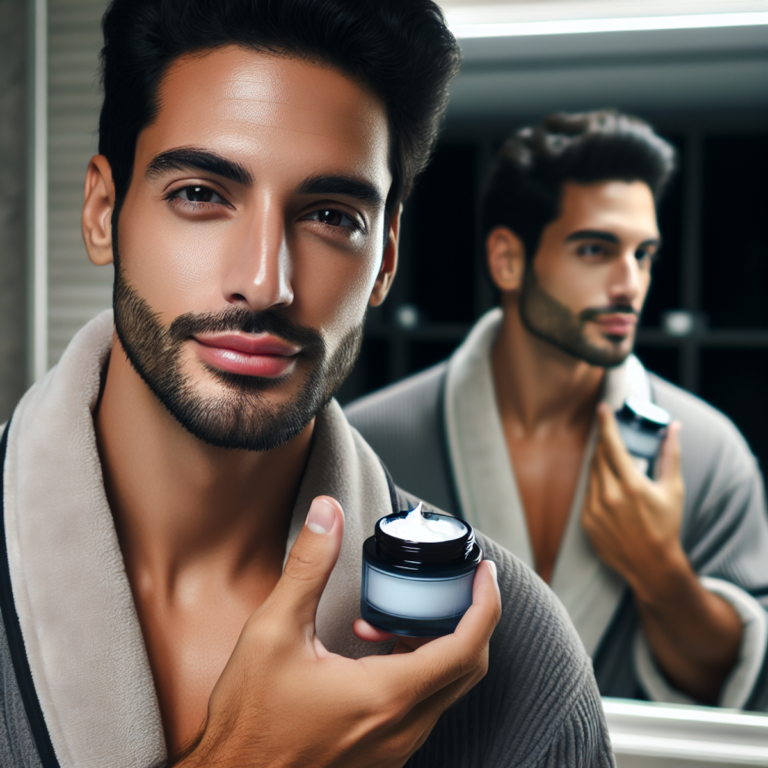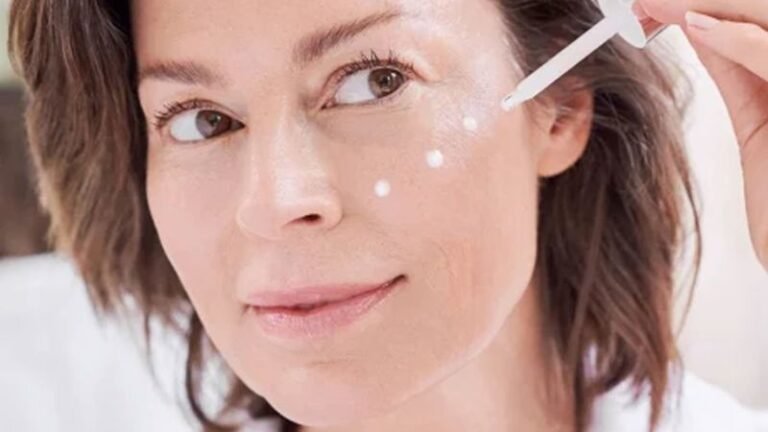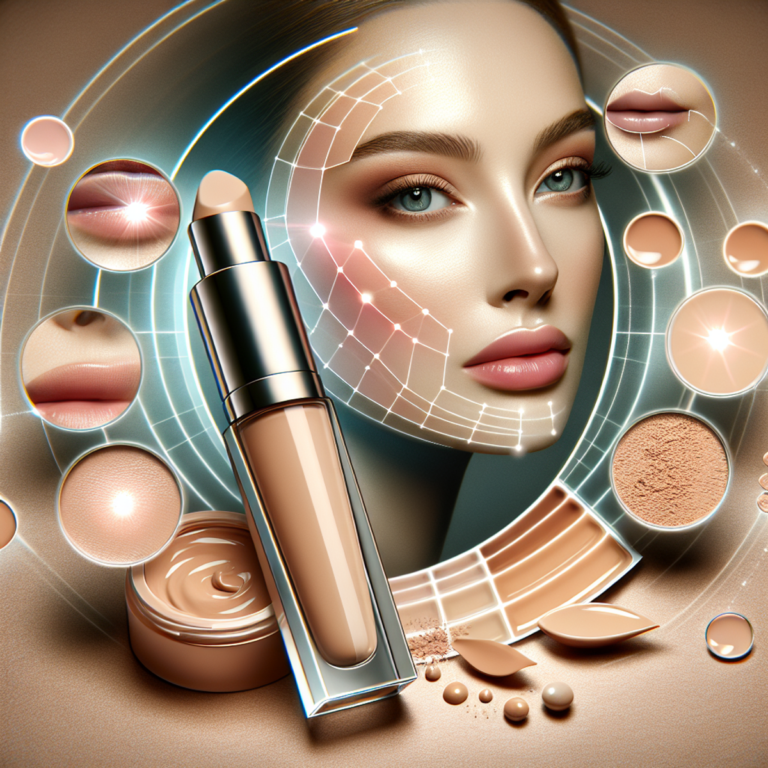Do Eggs Cause Acne? Here Are 3 Reasons That Answer Your Question

Introduction
The relationship between diet and acne has garnered significant attention in recent years. While genetics and hormones play crucial roles, certain foods can impact skin health and trigger breakouts. Understanding these food triggers is vital for maintaining clearer skin.
Research indicates that specific dietary choices may exacerbate acne symptoms. Individuals often notice fluctuations in their skin condition based on their food intake.
Recognizing how different foods affect your skin can empower you to make informed decisions about your diet. This awareness is essential for managing acne effectively.
The focus of this article is on eggs, a common food item that raises questions regarding its potential impact on acne. Eggs are nutrient-dense, offering proteins and vitamins, yet they also contain elements that could contribute to skin issues for some individuals. Exploring the connection between eggs and acne will provide a deeper understanding of whether they should be included in your diet or avoided if you’re prone to breakouts.
Understanding Acne
Acne is a common skin condition characterized by the presence of pimples, blackheads, and cysts. Various types of acne exist, including:
- Hormonal Acne: Often linked to fluctuations in hormones, particularly during puberty, menstruation, or hormonal disorders.
- Cystic Acne: A severe form that results in painful, deep cysts under the skin.
While diet plays a role, several other factors contribute to acne development:
- Hormonal Changes: Hormones can significantly impact skin health. Increased levels of androgens lead to enlarged oil glands and excess sebum production, which can clog pores.
- Genetics: Family history plays a crucial role. If your parents struggled with acne, you may be more prone to it as well.
- Environmental Factors: Pollution and exposure to certain chemicals can irritate the skin and exacerbate acne.
Understanding these aspects helps identify potential triggers beyond food. It’s important to recognize the role of hormones in skin health. For many individuals, fluctuations in hormone levels can initiate or worsen breakouts. Each person’s experience with acne is unique, influenced by a combination of hormonal activity and external factors.
Do Eggs Cause Acne? Here Are 3 Reasons That Answer Your Question
1. Hormonal Content in Eggs
Eggs contain several hormones, notably progesterone. Understanding the hormonal content in eggs is crucial when exploring their potential link to acne. Progesterone is known to influence skin health significantly. It can stimulate oil glands, leading to increased sebum production. Excess sebum can clog pores, creating an environment conducive to acne development.
- Progesterone’s Role: This hormone naturally fluctuates throughout the menstrual cycle. For individuals prone to hormonal acne, these fluctuations can exacerbate breakouts, particularly during the luteal phase when progesterone levels peak. Consuming foods high in progesterone, like eggs, may further compound this issue.
- Impact of Hormonal Fluctuations: Hormonal fluctuations affect not only women but also men. For those with existing sensitivities or predispositions to hormonal imbalances, incorporating eggs into the diet might trigger more frequent or severe acne flare-ups.
Experts suggest that individuals with a history of hormonal acne should consider their egg consumption carefully. While eggs are nutritionally beneficial, their hormonal content may not be suitable for everyone.
Understanding how dietary influences on acne arise from such components can help you make informed choices about your diet. If you notice a correlation between your egg intake and increased breakouts, it may be time to assess your consumption patterns.
Recognizing individual responses is important. Some people may consume eggs regularly without experiencing any skin issues, while others may find that even small amounts lead to noticeable changes in their skin condition.
Consider tracking your reactions after consuming eggs to identify any potential triggers related to hormonal content. This approach allows for a personalized understanding of how eggs and acne interact based on your unique body chemistry.
The relationship between eggs and acne can be influenced by the hormones present in these foods. Awareness of how progesterone interacts with your skin’s oil production and overall health will empower you to make dietary decisions that best support your skin health journey.
2. Inflammatory Response to Eggs
Eggs are often discussed as an inflammatory food in the context of eggs and acne. Certain individuals may experience sensitivities to eggs, which can trigger inflammatory responses in the body. Here’s a closer look at how this works:
1. Protein Content
Eggs contain a specific protein called albumin. For some people, consumption of albumin can lead to digestive issues. These issues may hinder proper nutrient absorption and block the lymphatic system, contributing to inflammation.
2. Inflammation and Acne
Inflammation plays a critical role in various types of acne, particularly cystic acne. Cystic acne is characterized by painful, deep nodules beneath the skin’s surface. This condition often results from blocked pores and inflamed sebaceous glands, which can be exacerbated by dietary influences on acne.
3. Sensitivity Variations
Each person’s reaction to egg consumption can vary significantly based on their unique biochemistry and genetics. Those with known sensitivities may find that eggs worsen their skin condition.
Understanding these connections helps clarify why some individuals might wonder, “Do Eggs Cause Acne? Here Are 3 Reasons That Answer Your Question.” The interplay between dietary components like eggs and hormonal fluctuations reinforces the importance of monitoring your diet if you struggle with acne.
3. Biotin and Keratin Production
Eggs are often included in discussions about acne due to their nutritional content, particularly biotin. This B-vitamin plays a crucial role in maintaining skin health by promoting cell regeneration and metabolism. Eggs provide a significant source of biotin, which is vital for sustaining healthy skin.
Excessive Biotin Intake
While biotin is essential, excessive consumption can lead to increased keratin production. Keratin is a protein that forms part of the structure of skin cells. When keratin levels rise excessively, it can result in pore blockage, a common issue linked to acne development.
Blocked Pores and Breakouts
Blocked pores create an environment conducive to the growth of bacteria, leading to inflammation and acne flare-ups. Individuals who consume large quantities of eggs may inadvertently increase their risk of pore blockage due to the elevated biotin levels.
Understanding these dynamics sheds light on how dietary influences on acne can stem from even seemingly healthy foods like eggs. As you evaluate your diet, consider the balance between beneficial nutrients and potential triggers related to hormonal fluctuations and oil glands.
Understanding Individual Sensitivities and Reactions to Eggs: A Personal Perspective on Acne Trigger Foods
Understanding individual sensitivities to foods like eggs is crucial in managing acne. Everyone’s body reacts differently based on several factors, including:
- Genetics: Your genes can affect how your body processes certain nutrients and responds to specific foods.
- Lifestyle: Factors such as stress levels, sleep quality, and overall diet can impact your skin health and how your body reacts to potential triggers.
Eggs and Acne: A Varying Relationship
Eggs may not cause acne for everyone. Some individuals may consume eggs regularly without any adverse effects, while others might experience flare-ups even with minimal intake.
The Importance of Understanding Your Body’s Responses
Knowing how your body uniquely responds can lead to a more personalized diet approach. Keeping a food diary may help identify specific reactions to eggs or other food items. Noting the frequency of consumption and subsequent skin changes allows for better-informed dietary choices.
Seeking Professional Guidance
Consulting with healthcare professionals or nutritionists can also provide insights tailored to your individual needs, ensuring that you maintain a balanced diet while minimizing potential triggers.
How to Get Rid of Pimples Fast: Effective Techniques for Clearer Skin Overnight!
Natural Remedies for Pimples: Harnessing Nature’s Power for Clear Skin
Dealing with pimples can be frustrating. Exploring natural remedies may provide relief and promote healthier skin. Here are some effective natural pimple remedies to consider:
1. Tea Tree Oil
Known for its antibacterial properties, tea tree oil is a popular choice for targeting acne. It helps reduce inflammation and kill bacteria on the skin’s surface. To use:
- Dilute tea tree oil with a carrier oil like coconut or jojoba oil.
- Apply directly to the pimple using a cotton swab.
- Leave it on overnight and rinse in the morning.
2. Aloe Vera
Aloe vera is renowned for its soothing properties. It can reduce redness and promote healing. Here’s how to incorporate it into your skincare routine:
- Use fresh aloe vera gel from the plant or store-bought pure gel.
- Apply a thin layer to affected areas before bedtime.
- Rinse in the morning.
3. Honey
Honey has natural antibacterial and anti-inflammatory properties. It can help soothe irritated skin and speed up healing processes. Try this method:
- Apply raw honey directly to the breakout.
- Leave it on for about 30 minutes before rinsing with warm water.
In addition to these remedies, lifestyle changes play a crucial role in maintaining clearer skin:
- Stay Hydrated: Drinking plenty of water helps flush out toxins from your body, promoting healthier skin. Aim for at least eight glasses a day.
- Balanced Diet: Consume a diet rich in fruits, vegetables, whole grains, and lean proteins. Foods high in antioxidants help combat oxidative stress, which can worsen acne.
- Regular Exercise: Physical activity improves blood circulation, helping nutrients reach your skin more effectively. Sweating also helps clear out pores.
- Adequate Sleep: Quality sleep supports skin repair processes. Aim for seven to nine hours of sleep each night to allow your body to recover.
By integrating these pimple removal methods into your daily life, you may find that managing breakouts becomes easier. The combination of targeted natural treatments and healthy lifestyle choices offers a holistic approach to achieving clearer skin.
Adopting these strategies not only aids in reducing current pimples but also contributes to long-term skin health.
Overnight Solutions for Pimples: Quick Fixes That Work!
When you need to tackle pesky pimples quickly, several effective pimple removal methods can help reduce their appearance overnight. Here are some of the best home treatments and products that deliver fast results:
1. Tea Tree Oil
Known for its antibacterial properties, applying diluted tea tree oil directly on the pimple can help combat inflammation and redness.
2. Aloe Vera Gel
This natural remedy soothes irritated skin and promotes healing. Apply fresh aloe vera gel to the affected area before bed.
3. Ice Treatment
Holding an ice cube against a pimple for a few minutes can reduce swelling and redness, giving you a more even complexion by morning.
4. Benzoyl Peroxide
A common ingredient in acne treatment products, benzoyl peroxide helps kill bacteria and exfoliate dead skin cells. Use a spot treatment with this ingredient to target blemishes.
For lasting results in maintaining clear skin:
- Establish a consistent skincare routine tailored to your individual needs.
- Incorporate gentle exfoliation to prevent clogged pores without irritating the skin.
- Stay hydrated and maintain a balanced diet rich in vitamins and minerals to support your skin health from within.
These tips will not only help you get rid of pimples on your face but also contribute to long-term skin clarity.
Long-term Strategies for Clear Skin: Building a Healthy Foundation Against Breakouts
Achieving clear skin requires a commitment to healthy habits that extend beyond quick fixes. A balanced diet plays a crucial role in maintaining skin health over time. Incorporating a variety of nutrient-rich foods can provide essential vitamins and minerals that support skin function and combat inflammation. Focus on:
- Fruits and Vegetables: Rich in antioxidants, these help fight oxidative stress.
- Whole Grains: Provide fiber that aids digestion and promotes healthy skin.
- Healthy Fats: Sources like avocados and nuts support skin elasticity.
In addition to diet, certain lifestyle choices can effectively prevent breakouts. Consider the following strategies:
- Hydration: Drinking adequate water helps flush out toxins, keeping your skin hydrated and reducing the likelihood of clogged pores.
- Stress Management: High stress levels can trigger hormonal fluctuations, leading to increased oil production. Techniques such as yoga, meditation, or regular exercise can help mitigate stress.
Adopting these long-term strategies not only addresses existing concerns but also lays the groundwork for permanent pimple solutions. By fostering healthy habits, you build a resilient foundation against breakouts while promoting overall well-being.
Conclusion: Finding Balance Between Nutrition and Skin Health
Understanding the link between eggs and skincare is essential for achieving clear skin. Here are key points to consider:
- Monitor Your Diet: Pay attention to how your body reacts to eggs and other foods. Keeping a food diary can help identify potential triggers.
- Balance is Key: Strive for a well-rounded diet that includes plenty of fruits, vegetables, whole grains, and lean proteins. This supports not just skin health but overall wellness.
- Listen to Your Body: Individual sensitivities vary. What works for one person may not work for another. Adjust your intake based on your unique needs.
Maintaining a healthy balance between nutrition and skin health requires awareness and personal experimentation. By prioritizing both elements, you can pave the way for clearer, healthier skin while enjoying the benefits of a diverse diet.










